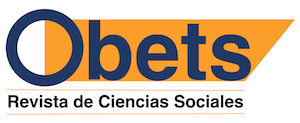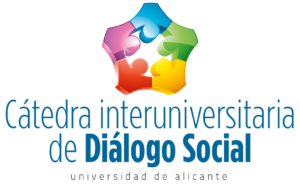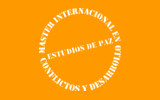The WHO CC on Social Inclusion and Health main topics are: 1) Promoting Social Participation in Health, 2) Roma Inclusion and Health, 3) Reorienting policies to better address health equity, and 4) Gender Equity.
1. Promoting Social Participation in Health
3. Reorienting health policies
1. Promoting Social Participation in Health
Social participation is about the population involvement in decisions that affect their health, and a key driver for health equity. The WHO CC has contributed with a toolkit, a MOOC and analysis to the promotion of this social innovation in the administration, companies, social entities and non-governmental organizations.
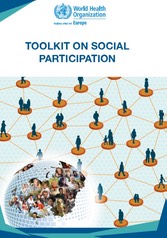
Toolkit on Social Participation
A toolkit to help various stakeholders to promote social participation in the design, implementation monitoring, and evaluation of strategies, programmes and activities to improve population health.

MOOC on Social Participation
A Massive Open Online Course to learn to design plans and programs of public policies from a participatory logic, allowing to incorporate in an effective way the voice and demands of those who are recipients of the actions to undertake.
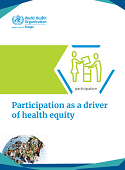
Participation as a driver of health equity
This paper includes a proposal for evaluation purposes that identifies six basic components to be measured: (i) inclusion; (ii) deliberation; (iii) information flow; (iv) decision-making; (v) institutional political will; and (vi) community capacity.
2. Roma Inclusion and Health
Since the Decade of Roma Inclusion (2005-2015) initiative was launched, the WHO CC has contributed to different initiatives to tackle social inequalities in health affecting the Roma in Europe. This was followed by the European Commission Framework on Roma Inclusion (2015-2020) and the current 2030 EU Roma strategic framework for equality, inclusion and participation.
The WHO CC has contributed to these initiatives with reports, training, analysis, involvement in different technical meetings (with WHO, but also coordinated with UNFPA, UNDP, FRA, OHCHR, IOM) and with the publication of the Roma Inclusion Newsletter.
Health inequities, with an explicit but not exclusive focus on Roma Health, is one of the main research fields of the WHO CC team.
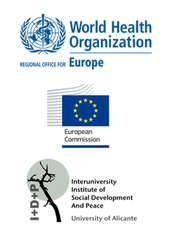
This paper includes a proposal for evaluation purposes that identifies six basic components to be measured: (i) inclusion; (ii) deliberation; (iii) information flow; (iv) decision-making; (v) institutional political will; and (vi) community capacity.
3. Reorienting health policies to better address health equity
The WHO CC participated in the training courses (developing a resource package, adapting materials and with teaching) to give support to the implementation of the National Roma Integration Strategies and the Decade of Roma Inclusion Action Plan with technical documents and training courses to reorient health initiatives to reduce health inequities, inspired in a previous methodology developed by Chile and the Spanish Ministry of Health.
The methodology was tested in four pilot countries (Serbia, Bulgaria, Montenegro and the North Macedonia), followed by Albania, Romania, Slovakia and Ukraine. This methodology continued to be developed by WHO headquarters and adopted under the name of Innov8, and the case studies of Serbia and North Macedonia were published in the WHO Collection Roma Health case studies (one of the Innov8 preparatory meetings was hosted by the WHO CC in Alicante in July 2014).
4. Gender Equity
The WHO CC research team on Intimate Partner Violence has a large experience researching on gender violence and gender equity. This experience has been translated to different initiatives in the work plan. We highlight here the policy brief on Preventing intimate partner violence against migrant and ethnic minority women, and the participatory action research project Romomatter! on reproductive justice.
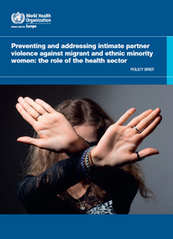
This policy brief aims to provide input into the role of the health sector in preventing and addressing IPV among migrant women and those of ethnic minorities. It describes the scope of the problem, presenting key evidence, and makes recommendations for health policy and health systems, health facilities and health service providers.

Romomatter. Participatory Action Research Project
The general objective of RoMOMatteR is to tackle gender discrimination by empowering Roma girls’ mattering to help them envision their own futures.
The Project includes also two different policy briefs on Reproductive Justice.
Contact Information
Head/Director: Daniel La Parra Casado, IUDESP, University of Alicante
WHO Responsible Officers since designation in 2012 (in chronological order)
Theadora Koller // Piroska Östlin // Christoph Hamelmann // Christine Brown // Tatjana Buzeti



